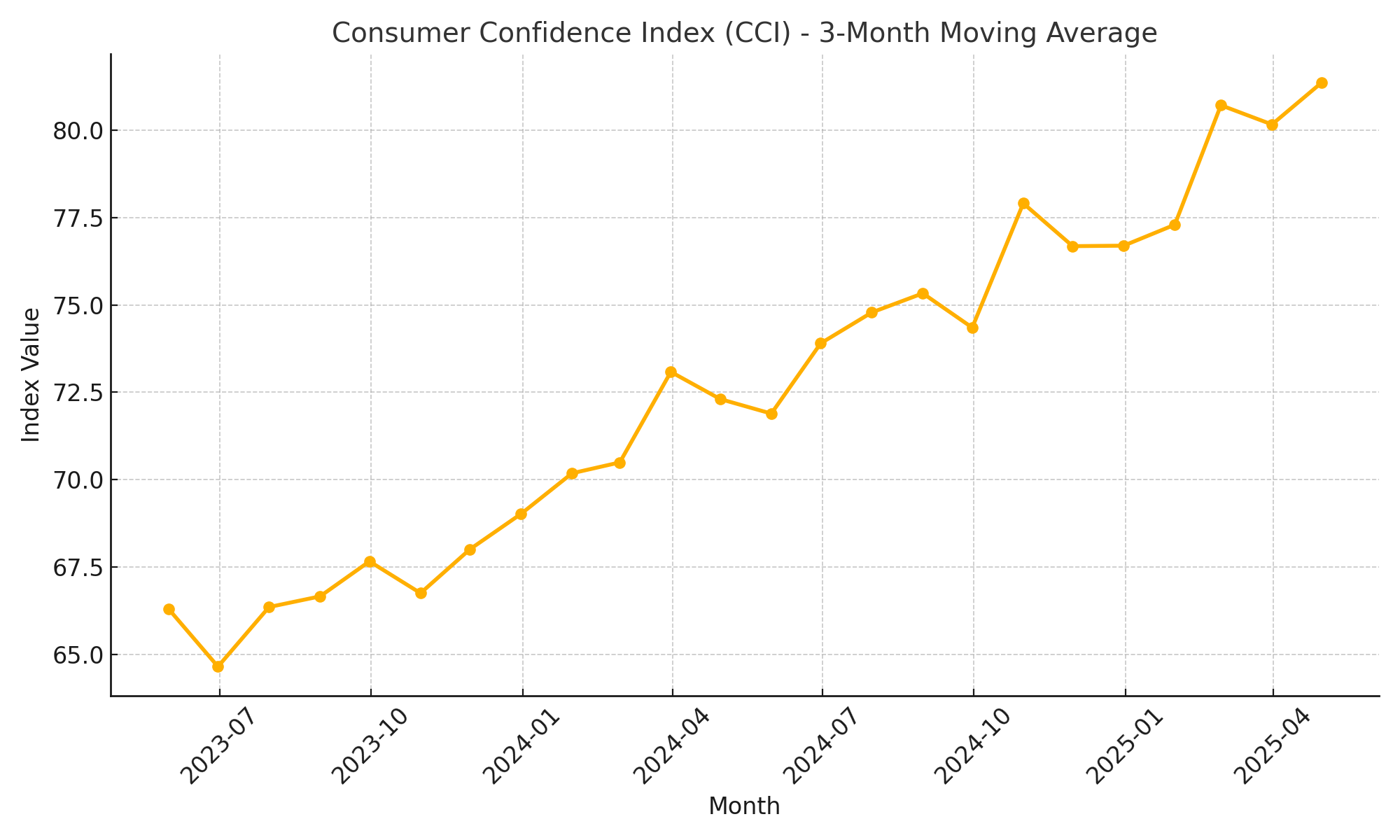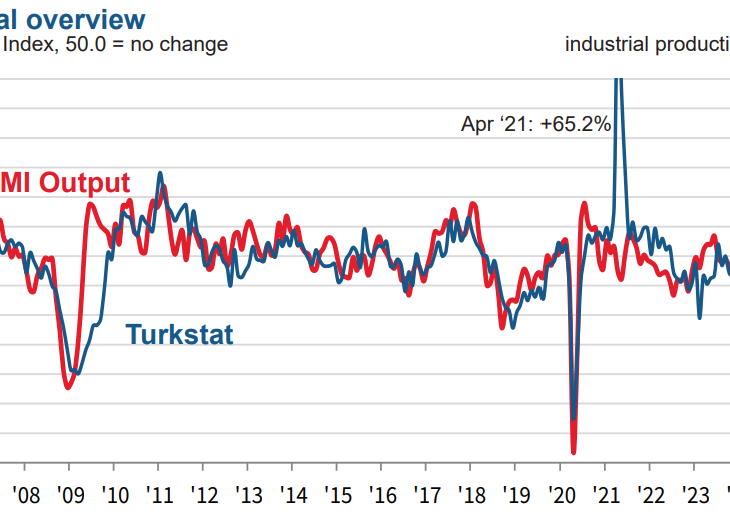Turkish economy at the end of March: Complex challenges, uncertain political outlook
 tr-outlook
tr-outlook
As of April 2025, Turkey’s economy exhibits a complex interplay of modest growth, persistent inflation, and political uncertainties. Recent high-frequency economic indicators provide a nuanced understanding of the current economic landscape.
Consumer Confidence
In March 2025, Turkey’s consumer confidence index increased by 4.6% from the previous month, reaching 85.9 points—the highest level since May 2023. This rise reflects improved consumer sentiment regarding the general economic situation and personal financial expectations. However, an index below 100 still indicates a pessimistic outlook among consumers.
Inflation Trends
The Istanbul Chamber of Commerce reported that consumer prices in Istanbul rose by 3.79% in March 2025, bringing the annual inflation rate to 46.23%. This modest increase underscores ongoing inflationary pressures within the country’s largest city.
Additionally, food prices across Turkey experienced a slight monthly increase of 3.25% in March, leading to an annual rate of 29.5%. This marks the third consecutive month of easing food price inflation, suggesting a potential stabilization in this critical sector.
Retail Sales
Retail sales in Turkey grew by 12.5% year-on-year in January 2025, down from a revised 14% increase in December 2024. This represents the slowest growth in five months, indicating a potential deceleration in consumer spending.
Economic Outlook
Despite some positive signs, such as the rise in consumer confidence, the Turkish economy continues to face challenges, including high inflation and political instability. The government’s adherence to orthodox economic policies, focusing on tight monetary measures and fiscal discipline, aims to address these issues. However, the effectiveness of these policies will depend on their implementation and the broader political environment.
In summary, while certain economic indicators show improvement, Turkey’s economy remains under pressure from persistent inflation and political uncertainties. The coming months will be critical in determining whether current policies can effectively stabilize the economic landscape.
Analysis
Further unrest, and the recent call of the main opposition party to boycott certain companies alleged to be close to Erdogan regime could create a demand shock. While Central Bank of Turkey has ample FX reserves to defend the implicit crawling peg, dubbed the strong TL policy, political upheaval could trigger precautionary demand for FX, rapidly diminishing reserves.
It is crucial for Central Bank of Turkey to stop rate cuts in its April 17 meeting, or even better to hike them to signal that TL assets will retain their attractiveness. Going forward, the economy’s main advantages are lower energy prices slowly feeding into subdues inflation and the approaching tourism season, which should generate an estimated $50 bn between June and October.
Press sources, PA Turkey Staff
Follow our English language YouTube videos @ REAL TURKEY: https://www.youtube.com/channel/UCKpFJB4GFiNkhmpVZQ_d9Rg
And content at Twitter: @AtillaEng
Facebook: Real Turkey Channel: https://www.facebook.com/realturkeychannel/






